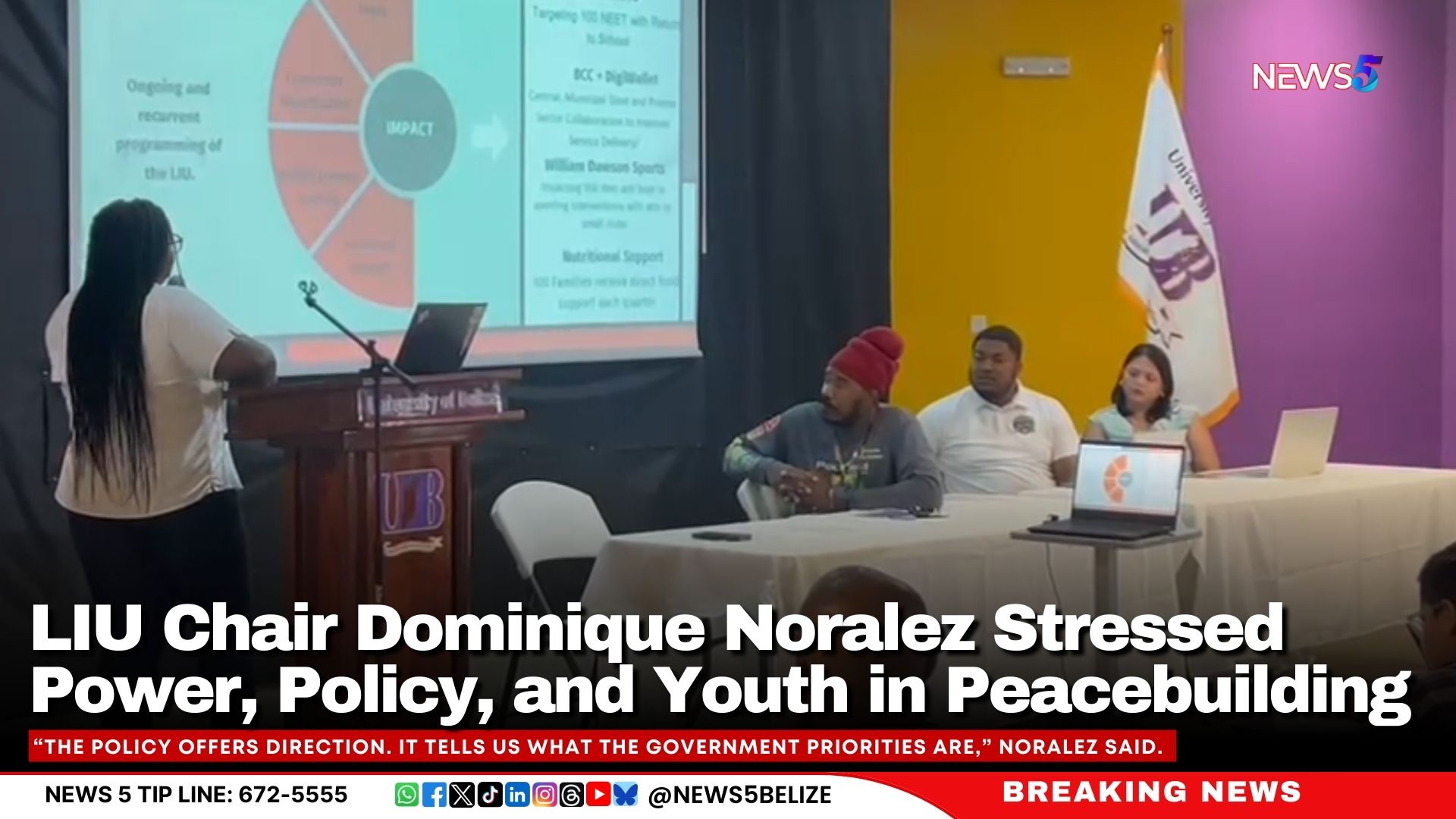At the opening of the 2025 symposium hosted by the Leadership Intervention Unit (LIU) and the University of Belize, LIU Chair Dominique Noralez delivered a powerful message on the connection between policy, power, and community-based crime intervention. The symposium, themed “Youth in Peacebuilding: Empowering Change Through Restorative Justice”, focuses on equipping young people with the tools and voice to help build safer communities.
Established in 2021 by the Ministry of Home Affairs, the LIU works to address crime and violence—particularly gang-related activity—in Belize City. The unit engages directly with at-risk youth, offering education, skills training, and employment opportunities. The symposium is a key platform for discussing peacebuilding strategies and promoting restorative justice among Belize’s young population.
Noralez opened the panel discussion by outlining how the LIU’s work is guided by major national policy documents, including the Multi-Sectoral Crime Prevention and Control Plan and the PlanBelize Medium-Term Development Strategy.
“The policy offers direction. It tells us what the government priorities are,” Noralez said. “But my personal politics compel me to always talk about power—who has it, who has proximity to it, where it’s concentrated.”
She also emphasised the need to move from policy to action. “We’re talking a bit about program translation—how do we translate this policy direction and priority into our programmes: rehabilitation, reintegration, and restoration?”
Noralez highlighted the role of the national budget in revealing true government priorities. “Budget is one of the most important pieces of document. You need to know what the government spends money on—that’s what it cares about. It’ll sell one thing, but what we spend money on is what we care about. That is your money there at all times, right?”
In addition to national strategies, Noralez referenced regional frameworks like the Declaration on Crime and Violence as a Public Health Crisis, endorsed by CARICOM leaders in 2023 and reaffirmed in 2024. “This is what our CARICOM heads of government put in place… one meeting held in Trinidad and Tobago, one in Guyana. As you know, Trinidad and Tobago has one of the highest [crime rates in] this region,” she said.
